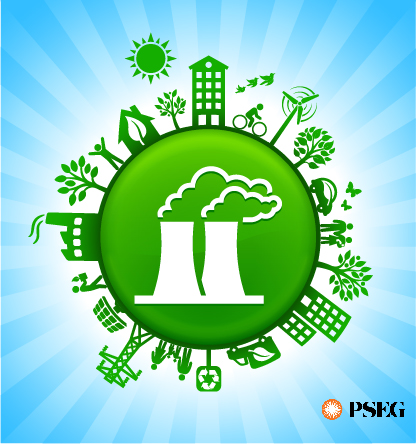Nuclear and EVs (Sponsored Content)

By PSEG
When a car buyer chooses to make the switch from a traditional gas-powered vehicle to a plug-in electric model, they’re often motivated by a desire to drive cleaner and reduce their impact on the environment.
Because EVs don’t burn gasoline, their engines produce none of the greenhouse gas emissions or other air pollution that can harm the environment and contribute to climate change.
However, in order to achieve a 100% clean transportation sector, we also must consider how the electricity that powers our EVs is generated. If a driver charges their EV with electricity produced using today’s grid, often fossil fuel-heavy, then the act of driving that vehicle still results in some harmful emissions.
Although EVs are always a cleaner option than gasoline-fueled cars, an electric vehicle is still only as clean as the electricity that powers it.
Transportation is the largest source of GHG emissions in New Jersey and across the U.S., including pollutants that are harmful to public health. As the largest source of carbon-free power in New Jersey and across the U.S., nuclear energy will play an important role in how we power our rapidly growing fleet of EVs to maximize reduction of emissions that pollute the air and damage the climate.
Moreover, air pollution disproportionately affects vulnerable communities. Supporting the clean energy generated by nuclear power delivers a great benefit to the environmental and public health of at-risk populations.
With worldwide EV sales increasing every year - Bloomberg New Energy Finance predicts global EV sales will surge to 30 million by 2030 – there also will be increasing demand for the additional electricity needed to charge them. And as demand for electrified fleets of trucks, buses and other types of transportation also expands, demand for electricity will continue to grow, as well.
The U.S. Energy Information Administration expects that the growing adoption of EVs will lead to a 25% increase in energy demand by 2040. Wherever that demand can be met by nuclear power, the transportation sector will be increasingly emissions-free.
Today, nuclear plants produce nearly 40% of New Jersey’s electricity, and more than 90% of the state’s carbon-free power. Nationwide, nuclear energy provides fully half of the U.S. supply of carbon-free power. And because nuclear plants operate around-the-clock and through the night, when EVs are often charging, they are certain to be an important part of our EV charging infrastructure.
The effect on our carbon footprint is simple to understand: If our electricity comes from carbon-free resources such as nuclear, solar, wind or hydroelectric power, your EV runs much cleaner than if it’s powered by fossil fuels.
As New Jersey, the nation and the world switch to electric vehicles, nuclear power will help ensure that EVs are able to deliver their full potential as clean transportation alternatives.
This post is sponsored content from PSE&G.






All IPCC 1.5C pathways require increasing the amount of nuclear power generation. Ignore the kooks, here are some facts about nuclear energy: https://ourworldindata.org/safest-sources-of-energy
What hypocrisy! Depicting nuclear power as ''clean'' and ''green''. Everyone knows that it produces toxic, pretty much everlasting radioactive trash. The total nuclear fuel chain , from uranium mining through to the buriria of wastes and of the dead toxic reactor itself, emits pplenty of carbon. The picture accompanying this promotional article is such an obvious lie, that it is laughable.